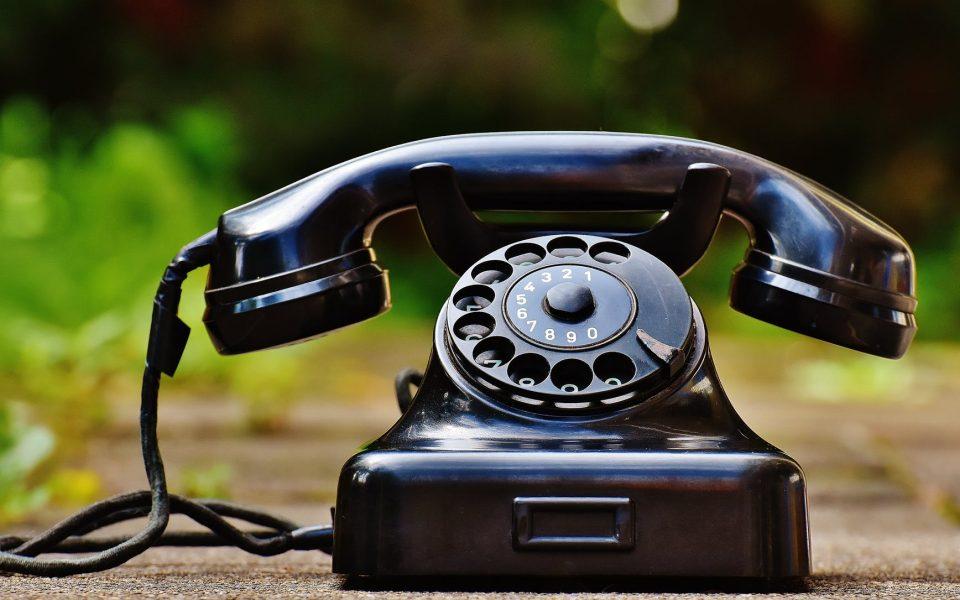This story was originally published by by Taylor Knopf, North Carolina Health News on July 18, 2022.
On July 16, the universal mental health crisis hotline — 988 — went live across the nation. The idea behind the shift from the 10-digit National Suicide Prevention Lifeline to the three-digit mental health crisis number is that it’s easy to remember — similar to the easy-to-remember 911 — and will be the same everywhere.
Right now, most everyone knows to call 911 in an emergency. But law enforcement and emergency responders are not always equipped to help someone who is in mental health distress, having a psychotic episode, or thinking about suicide. The 988 mental health crisis number is designed to give people a different option that isn’t routed through law enforcement.
The idea is to put people who call 988 in touch with a trained crisis counselor, who in many cases can help de-escalate the situation over the phone or direct the caller to additional mental health support. If the caller is still in need of immediate help, a mobile crisis team of mental health professionals will respond, North Carolina health officials have explained.
Though Congress passed legislation to create the 988 universal crisis line in 2020, national experts have worried that not all states would be ready to launch the line. The switch to 988 is expected to increase the call volume by potentially up to 50 percent in the first year. The Wall Street Journal recently reported that one in six calls to the National Suicide Prevention Lifeline end without reaching a counselor.
However, just days before the July 16 launch, North Carolina officials said they were confident the state was ready.
“I feel like we’re in an incredibly robust position as far as readiness and our response rates have been really strong,” N.C. Department of Health and Human Services Sec. Kody Kinsley told a group gathered on July 14 for a mental health town hall in Greensboro.
“North Carolina has perhaps one of the highest performing Suicide Prevention Lifeline with regard to call-to-answer in the country. I believe that our latest number is that 98 percent of calls are answered. We’re second only to the city-state of Rhode Island,” Kinsley said. “We’re really thrilled, considering we’re a state of 10 million people, that folks are able to get access so quickly to that call center.”
NCDHHS echoed Kinsley’s remarks in a press release, adding that in “in May 2022, 98 percent of calls were answered in less than seven seconds, the second-best rate among the 50 states.”
“But we know that when you’re in crisis, trying to figure out what number to call is not the moment to figure that out,” Kinsley said. “And so to have a single three-digit number to dial is a real transformational opportunity.”
In anticipation of the 988 rollout, Kinsley said the state began investing in the call center and other resources necessary to launch the universal crisis hotline in 2020 during the start of the COVID-19 pandemic. North Carolina set up the statewide Hope4NC helpline for disaster relief and co-located it with the state-based Suicide Prevention Lifeline call center, Kinsley explained. The state along with North Carolina health systems have continued to launch more mobile crisis units as well.
State lawmakers passed a budget last month that directs $1.3 million in annual funding for the 988 call center. Earlier this year, North Carolina received a $3.3 million federal grant from the Substance Abuse and Mental Health Administration to help with the launch of 988 as well.

Amanda McGough, board president of the North Carolina Chapter of the American Foundation for Suicide Prevention, said that she was excited for the launch of the easy-to-remember crisis hotline.
“I also think it kind of can be a part of helping to reduce stigma,” she said. “We all know 911 for medical or other forms of emergencies, and so this kind of equalizes mental health emergencies in some ways with 988.”
However, McGough is concerned that the crisis response network has not been fully funded throughout every area of the state and the country. There needs to be enough people to answer the phones and respond on the ground in every community.
“So with 988, I’ve seen some things that are predicting that we will have an increased call volume — which I think is probably true — and yet at the same time, not everywhere has experienced an increase in funding to be able to support those individuals.”
Kinsley said the state will monitor the early data on a monthly basis to see how the state is keeping up with demand for the 988 hotline.
This article first appeared on North Carolina Health News and is republished here under a Creative Commons license.
North Carolina Health News is an independent, non-partisan, not-for-profit, statewide news organization dedicated to covering all things health care in North Carolina. Visit NCHN at northcarolinahealthnews.org.
Join the First Amendment Society, a membership that goes directly to funding TCB‘s newsroom.
We believe that reporting can save the world.
The TCB First Amendment Society recognizes the vital role of a free, unfettered press with a bundling of local experiences designed to build community, and unique engagements with our newsroom that will help you understand, and shape, local journalism’s critical role in uplifting the people in our cities.
All revenue goes directly into the newsroom as reporters’ salaries and freelance commissions.


Leave a Reply